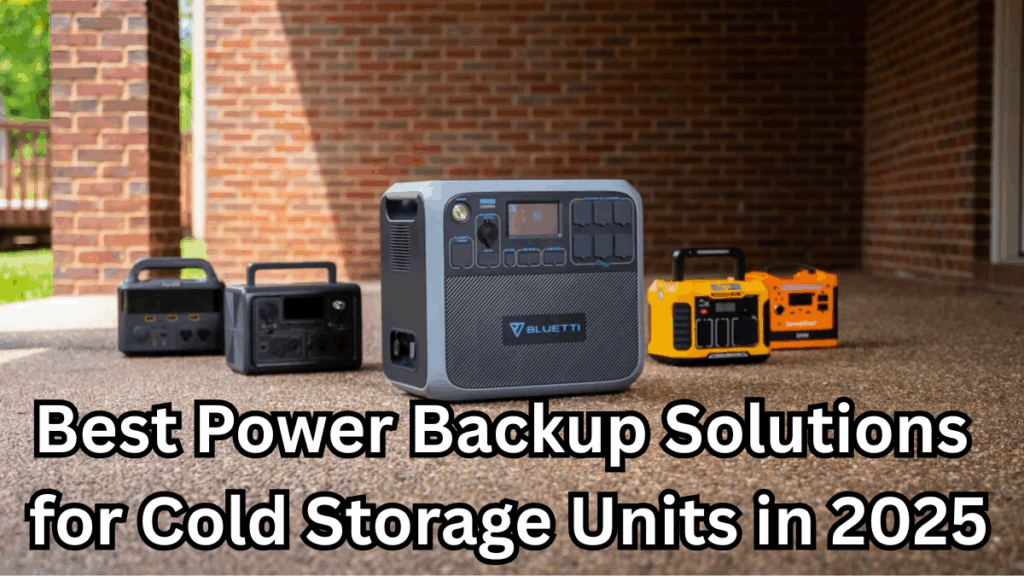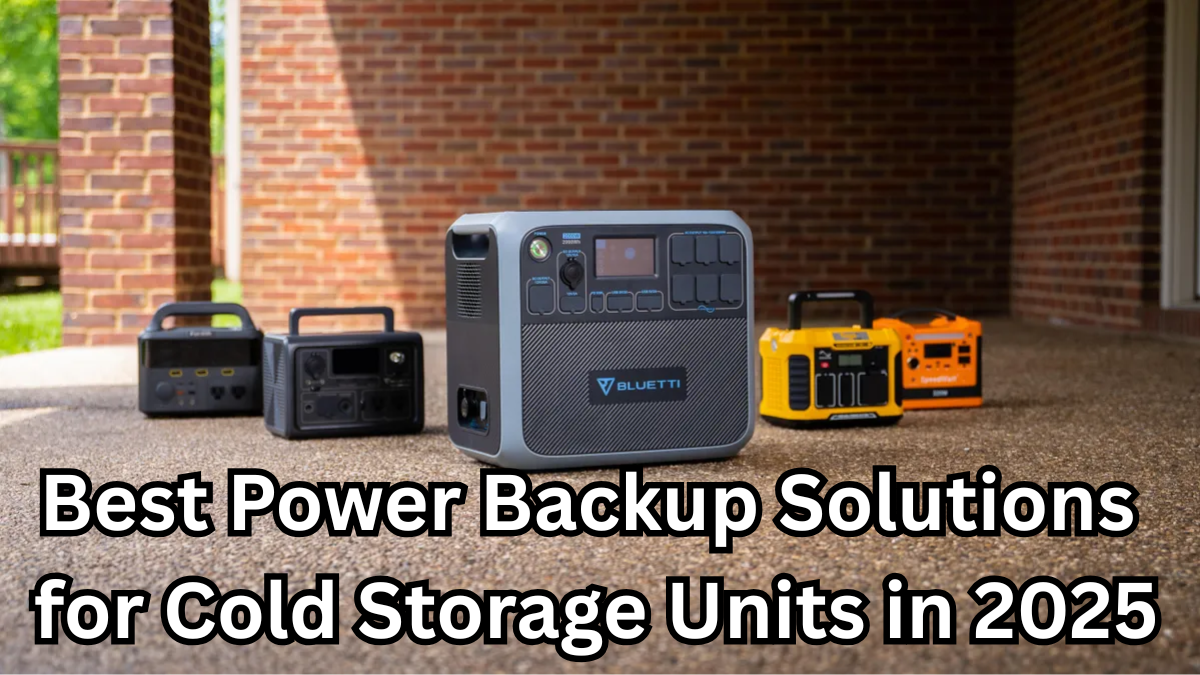Maintaining uninterrupted power supply is critical for cold storage units. Even a brief power outage can compromise stored goods, leading to significant financial losses. With evolving technology, businesses now have access to advanced power backup for cold storage solutions that ensure efficiency, reliability, and cost-effectiveness.

Why Cold Storage Units Need Reliable Power Backup
Cold storage units rely heavily on consistent cooling to maintain product quality. Power interruptions can lead to:
-
Spoiled perishable goods, including fruits, vegetables, dairy, and meat.
-
Increased operational losses due to equipment downtime.
-
Risk to brand reputation if clients receive damaged or spoiled products.
Hence, having a dependable inverter solution or backup system is no longer optional but essential.
Top Power Backup Solutions in 2025
Diesel Generators (DG Sets)
Diesel generators remain a popular choice due to their high capacity and reliability.
Advantages:
-
Handles high load requirements
-
Long runtime, suitable for extended outages
-
Can support multiple cold storage units simultaneously
Considerations:
-
Requires regular maintenance
-
Noise and emissions can be a concern in urban areas
| Feature | Details |
|---|---|
| Power Capacity | 50 kVA – 500 kVA |
| Runtime | 6–24 hours depending on fuel storage |
| Maintenance Cycle | Every 500 hours of operation |
| Best For | Large cold storage units |
Inverter Solutions
Modern inverter solutions offer seamless power supply and energy efficiency for smaller to medium-sized cold storage units.
Advantages:
-
Silent operation and environmentally friendly
-
Quick switch-over during power cuts
-
Reduced operational costs compared to diesel generators
Considerations:
-
Limited runtime based on battery capacity
-
Initial investment can be higher for large capacity units
| Feature | Details |
|---|---|
| Power Capacity | 1 kVA – 50 kVA |
| Backup Duration | 2–8 hours depending on battery size |
| Maintenance Cycle | Every 6 months |
| Best For | Small to medium cold storage units |
Solar Hybrid Backup Systems
With sustainability becoming a priority, solar hybrid systems are emerging as a cost-effective alternative.
Advantages:
-
Reduces electricity bills
-
Eco-friendly with minimal carbon footprint
-
Can integrate with existing DG or inverter systems for continuous backup
Considerations:
-
Initial installation cost is high
-
Depends on sunlight availability and battery storage for nighttime backup
| Feature | Details |
|---|---|
| Power Capacity | 5 kVA – 100 kVA |
| Backup Duration | 4–12 hours with battery storage |
| Maintenance Cycle | Annual panel cleaning, battery check |
| Best For | Medium to large cold storage units |
Tips for Choosing the Right Power Backup
-
Assess Load Requirements: Calculate total power consumption, including refrigeration and lighting
-
Consider Runtime Needs: Determine the expected duration of power outages in your area
-
Hybrid Solutions: Combining inverter, DG, and solar systems ensures maximum uptime
-
Maintenance Support: Opt for suppliers offering reliable after-sales service
FAQs
Q1. What is the best backup solution for small cold storage units?
For small units, modern inverter solutions are ideal as they provide reliable power without high operational costs.
Q2. Can solar power alone run a cold storage unit efficiently?
Solar power can run cold storage units if paired with sufficient battery storage. Hybrid systems combining solar with DG or inverter backup provide continuous reliability.
Q3. How often should diesel generators be serviced?
DG sets should ideally be serviced every 500 hours of operation or at least twice a year to ensure efficiency and longevity.
Q4. What factors should I consider before installing a backup system?
Evaluate your unit size, load requirements, expected outage duration, environmental conditions, and budget. Combining multiple systems often provides the best resilience.
Click here to learn more
